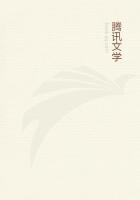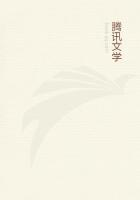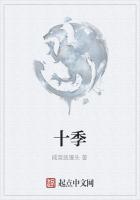It was Parson Jones who first spoke. "But what do all these figures mean?" And Tom observed how the paper shook and rustled in the tremor of excitement that shook his hand. He raised the paper to the focus of his spectacles and began to read again.
"'Mark 40, 72, 91--'"
"Mark?" cried out Tom, almost screaming. "Why, that must mean the stake yonder; that must be the mark." And he pointed to the oaken stick with its red tip blazing against the white shimmer of sand behind it.
"And the 40 and 72 and 91," cried the old gentleman, in a voice equally shrill--"why, that must mean the number of steps the pirate was counting when you heard him.""To be sure that's what they mean!" cried Tom Chist. "That is it, and it can be nothing else. Oh, come, sir--come, sir; let us make haste and find it!""Stay! stay!" said the good gentleman, holding up his hand; and again Tom Chist noticed how it trembled and shook. His voice was steady enough, though very hoarse, but his hand shook and trembled as though with a palsy. "Stay! stay! First of all, we must follow these measurements. And 'tis a marvelous thing," he croaked, after a little pause, "how this paper ever came to be here.""Maybe it was blown here by the storm," suggested Tom Chist.
"Like enough; like enough," said Parson Jones. "Like enough, after the wretches had buried the chest and killed the poor black man, they were so buffeted and bowsed about by the storm that it was shook out of the man's pocket, and thus blew away from him without his knowing aught of it.""But let us find the box!" cried out Tom Chist, flaming with his excitement.
"Aye, aye," said the good man; "only stay a little, my boy, until we make sure what we're about. I've got my pocket compass here, but we must have something to measure off the feet when we have found the peg. You run across to Tom Brooke's house and fetch that measuring rod he used to lay out his new byre. While you're gone I'll pace off the distance marked on the paper with my pocket compass here."VTom Chist was gone for almost an hour, though he ran nearly all the way and back, upborne as on the wings of the wind. When he returned, panting, Parson Jones was nowhere to be seen, but Tom saw his footsteps leading away inland, and he followed the scuffling marks in the smooth surface across the sand humps and down into the hollows, and by and by found the good gentleman in a spot he at once knew as soon as he laid his eyes upon it.
It was the open space where the pirates had driven their first peg, and where Tom Chist had afterward seen them kill the poor black man. Tom Chist gazed around as though expecting to see some sign of the tragedy, but the space was as smooth and as undisturbed as a floor, excepting where, midway across it, Parson Jones, who was now stooping over something on the ground, had trampled it all around about.
When Tom Chist saw him he was still bending over, scraping away from something he had found.
It was the first peg!
Inside of half an hour they had found the second and third pegs, and Tom Chist stripped off his coat, and began digging like mad down into the sand, Parson Jones standing over him watching him.
The sun was sloping well toward the west when the blade of Tom Chist's spade struck upon something hard.
If it had been his own heart that he had hit in the sand his breast could hardly have thrilled more sharply.
It was the treasure box!
Parson Jones himself leaped down into the hole, and began scraping away the sand with his hands as though he had gone crazy. At last, with some difficulty, they tugged and hauled the chest up out of the sand to the surface, where it lay covered all over with the grit that clung to it. It was securely locked and fastened with a padlock, and it took a good many blows with the blade of the spade to burst the bolt. Parson Jones himself lifted the lid. Tom Chist leaned forward and gazed down into the open box. He would not have been surprised to have seen it filled full of yellow gold and bright jewels. It was filled half full of books and papers, and half full of canvas bags tied safely and securely around and around with cords of string.
Parson Jones lifted out one of the bags, and it jingled as he did so. It was full of money.
He cut the string, and with trembling, shaking hands handed the bag to Tom, who, in an ecstasy of wonder and dizzy with delight, poured out with swimming sight upon the coat spread on the ground a cataract of shining silver money that rang and twinkled and jingled as it fell in a shining heap upon the coarse cloth.
Parson Jones held up both hands into the air, and Tom stared at what he saw, wondering whether it was all so, and whether he was really awake. It seemed to him as though he was in a dream.
There were two-and-twenty bags in all in the chest: ten of them full of silver money, eight of them full of gold money, three of them full of gold dust, and one small bag with jewels wrapped up in wad cotton and paper.
"'Tis enough," cried out Parson Jones, "to make us both rich men as long as we live."The burning summer sun, though sloping in the sky, beat down upon them as hot as fire; but neither of them noticed it. Neither did they notice hunger nor thirst nor fatigue, but sat there as though in a trance, with the bags of money scattered on the sand around them, a great pile of money heaped upon the coat, and the open chest beside them. It was an hour of sundown before Parson Jones had begun fairly to examine the books and papers in the chest.
Of the three books, two were evidently log books of the pirates who had been lying off the mouth of the Delaware Bay all this time. The other book was written in Spanish, and was evidently the log book of some captured prize.















